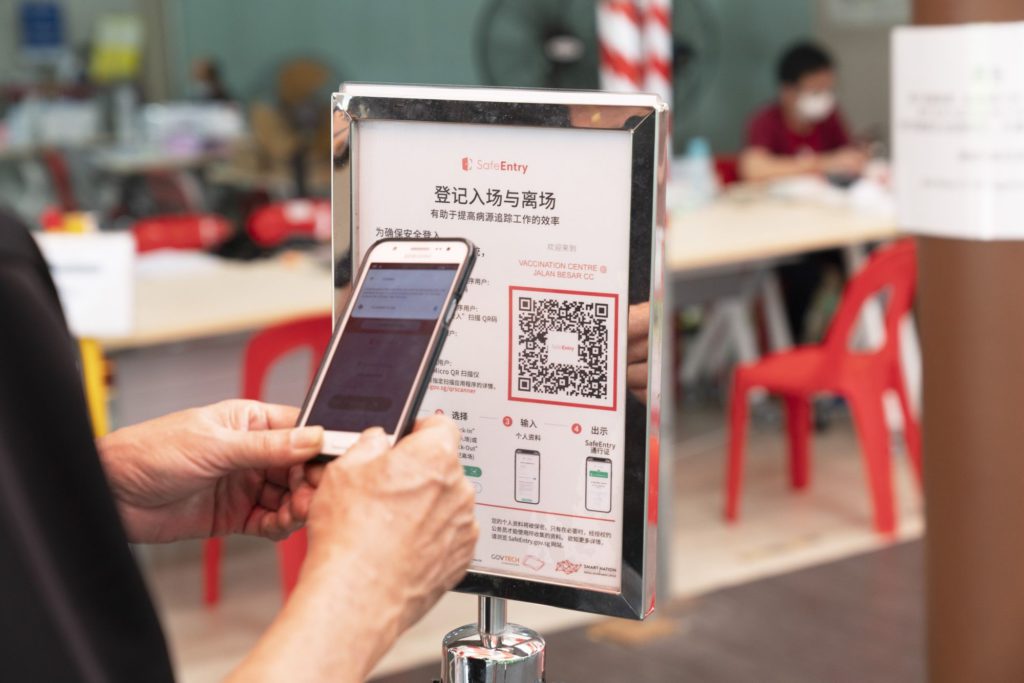(Bloomberg) — Singapore will move away from a key Covid-19 contact tracing app that previously attracted controversy due to government disclosures about its use for criminal investigations, but retain the data under a previously passed law.
The health ministry on Friday said most venues will no longer require the public to check in using the TraceTogether program from April 26, a mobile application and device used by authorities for identifying the close contacts and locations visited by infected persons.
Singapore Hails ‘Happy Day’ With Most Virus Curbs Set to End
The TraceTogether program was initially rolled out in the early onset of the global pandemic in March 2020 as a Bluetooth-based mobile application. Since then, together with a small device for those without smartphones, it has become an almost ubiquitous presence among the city-state’s 5.7 million residents, with its use required as proof of vaccination and to check in to most public venues, including restaurants, malls and attractions.
But the program, which the government initially said was a key tool to control the virus, attracted controversy after authorities disclosed that data collected could be used for certain police investigations, and was utilized in a murder case.
Authorities were forced to rush through legislation in parliament early last year allowing the data’s purpose away from virus tracking purposes only “where there is a clear and pressing need to use that data for criminal investigation of serious offences,” despite opposition and rights groups criticizing the plan.
The health ministry said Friday the data will still be used by the police and law enforcement for such purposes under the passed law. Checking in will continue be conducted at larger events with more than 500 participants, and certain nightlife establishments where vaccination-proof remains a requirement. It also encouraged the public to keep the app on their phones and retain the devices.
While the use of apps for functions such as contact tracing, testing and vaccine proof gained traction throughout the globe during the pandemic, privacy concerns over their handling of personal data and a pivot toward living with the virus have led to them falling out of favor in places such as the U.K. and Australia. They remain widely used in Asian countries including China and Malaysia.
More stories like this are available on bloomberg.com
©2022 Bloomberg L.P.











